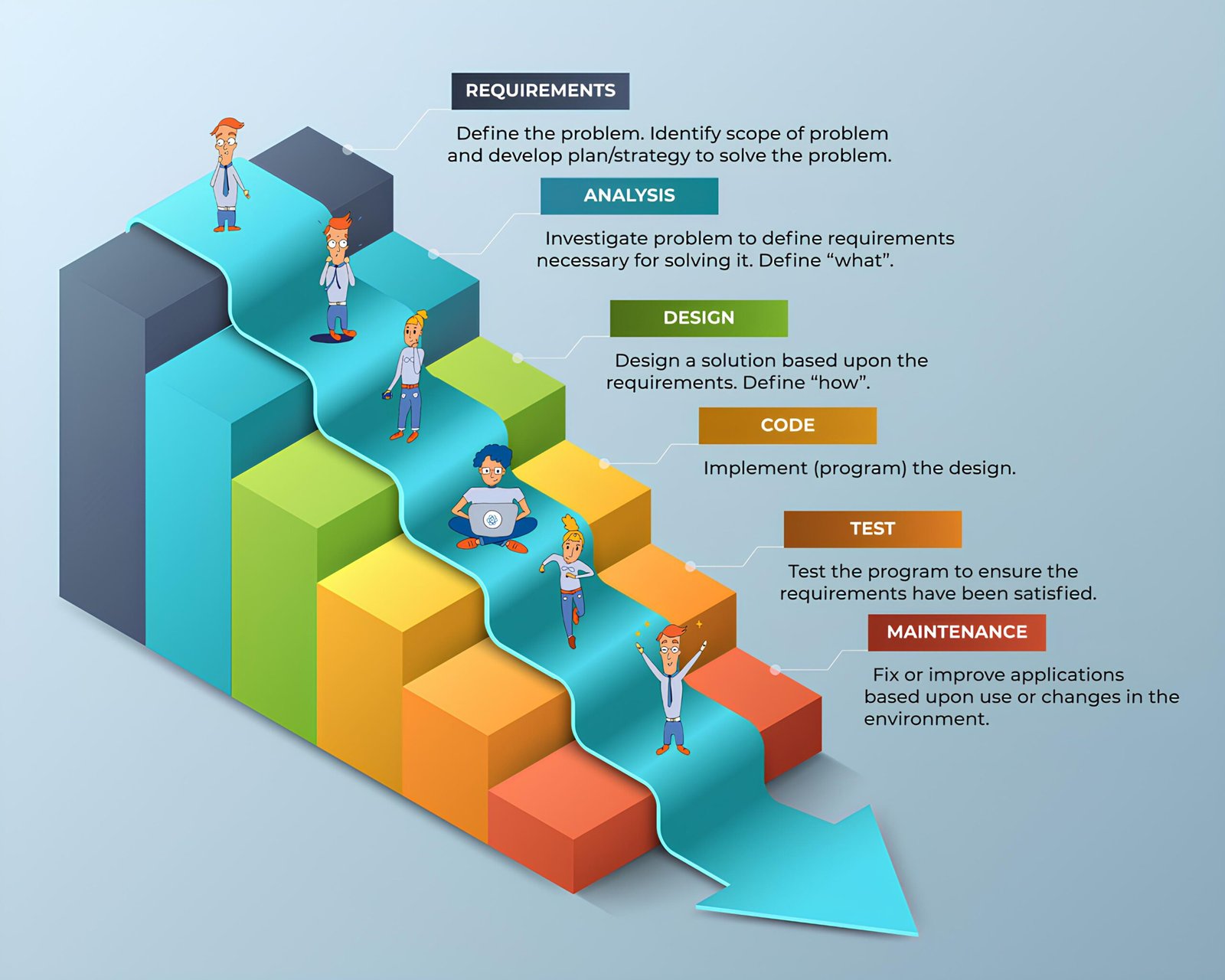What is (AGI)? Artificial General Intelligence
Maaz Khalid
May 10, 2024

In the ever-evolving landscape of artificial intelligence (AI), the pursuit of artificial general intelligence (AGI) stands as one of our era’s most ambitious and consequential endeavors. AGI aims to create machines capable of understanding, learning, and applying intelligence with the flexibility and robustness akin to human cognition, a feat that would mark a profound milestone in technological advancement.
This comprehensive guide delves into the intricacies of AGI, exploring its capabilities, contrasting it with current AI technologies, and examining real-world examples and case studies. We’ll unravel the complexities of artificial general intelligence, its potential impact across industries, and the ongoing efforts to achieve this transformative breakthrough in artificial intelligence.
Understanding Artificial General Intelligence (AGI)
Artificial general intelligence (AGI), also known as strong AI or deep AI, refers to the ability of machines to think, comprehend, learn, and apply their intelligence to solve complex problems, much like humans. It aims to create AI systems that can match or surpass human-level cognitive abilities across a wide range of tasks and domains.
Definition And Scope
AGI is the representation of generalized human cognitive abilities in software, enabling the system to find solutions to unfamiliar tasks. The goal of an AGI system is to handle any task a human can, regardless of the domain or context. AGI systems are designed to possess comprehensive knowledge and cognitive computing capabilities that would theoretically be indistinguishable from human intelligence.
Key Characteristics
AGI systems are envisioned to have the following key characteristics:
Abstraction and reasoning: AGI systems should possess the ability for abstract thinking, reasoning, and understanding complex concepts and relationships.
Background knowledge and common sense: They should have access to a broad base of background knowledge and common sense reasoning abilities, similar to humans.
Adaptability and transfer learning: AGI systems should be capable of adapting to new situations, environments, and tasks, leveraging transfer learning to apply knowledge and skills across different domains.
Self-awareness and emotions: Strong AI is expected to be fully self-aware, with the ability to express emotions and recognize the emotions, beliefs, and thought processes of other intelligent systems.
Autonomous learning and self-improvement: AGI systems should have the capability to self-learn, reason with their operating environment, and continuously improve their cognitive abilities without human intervention.
Comparison With Narrow AI
In contrast to narrow AI, which is designed to excel at specific tasks or types of problems within a limited domain, AGI aims to achieve a more comprehensive and flexible form of intelligence. While current AI systems rely on techniques like machine learning, deep learning, and natural language processing to solve specific problems, they do not approach the cumulative ability of the human brain.
AGI systems are expected to leverage advanced versions of these technologies, combined with techniques like clustering, association, and knowledge transfer, to achieve a more generalized form of intelligence. Unlike narrow AI, which operates within predefined rules and parameters, AGI systems are envisioned to be autonomous, self-learning, and capable of adapting to different environments and situations.
Capabilities Of AGI
The envisioned capabilities of artificial general intelligence (AGI) systems are vast and multifaceted, encompassing a wide range of cognitive abilities that would enable them to tackle complex tasks and challenges across diverse domains. AGI systems are anticipated to have several key capabilities, including:
Abstract Thinking And Problem Solving
AGI systems are anticipated to excel in abstract thinking and problem-solving abilities. They would be capable of recognizing patterns, drawing inferences, and formulating innovative solutions to intricate problems, even in unfamiliar or novel situations. AGI systems would possess the ability to reason logically, think critically, and apply their knowledge and skills to solve complex, multi-step problems that require a high level of cognitive flexibility.
Natural Language Understanding And Communication
A crucial capability of AGI systems would be their proficiency in natural language understanding and communication. They would be able to comprehend and interpret human language in all its nuances, including idioms, metaphors, and contextual cues. AGI systems would also be adept at generating human-like responses, engaging in fluent conversations, and effectively conveying complex ideas and concepts through natural language.
Perception And Motor Skills
AGI systems are expected to have advanced perception and motor skills, enabling them to interact with and navigate the physical world seamlessly. They would be capable of processing and interpreting sensory inputs, such as visual, auditory, and tactile information, and responding appropriately. Additionally, AGI systems would possess the ability to control and coordinate complex movements, allowing them to perform intricate tasks requiring dexterity and precision.
Other anticipated capabilities of AGI systems include:
Continuous Learning and Adaptation: AGI systems would have the ability to continuously learn and adapt to new situations, environments, and tasks, expanding their knowledge and capabilities over time.
Creativity and Imagination: They are expected to exhibit creativity and imagination, enabling them to generate novel ideas, solutions, and artistic expressions.
Emotional Intelligence: AGI systems may possess emotional intelligence, allowing them to recognize, understand, and respond appropriately to human emotions and social cues.
Multi-tasking and Parallel Processing: With their advanced computational capabilities, AGI systems would be able to perform multiple tasks simultaneously and process vast amounts of information in parallel.
These capabilities, combined with the potential for self-awareness and consciousness, would make AGI systems truly remarkable and transformative, with far-reaching implications across various domains, from scientific research and technological innovation to healthcare, education, and beyond.
AGI vs. Current AI Technologies
Current AI applications, often referred to as narrow AI or weak AI, are designed to excel at specific tasks within a limited domain. These systems rely on techniques like machine learning, deep learning, and natural language processing to solve predefined problems. However, they do not approach the comprehensive cognitive abilities of human intelligence.
Current AI Applications
- Narrow AI systems operate within predefined rules and parameters, excelling at specific tasks or types of problems within their limited domain.
- While current AI systems can be highly effective at the tasks they are designed for, they lack the ability to truly understand and apply intelligence across different environments and situations.
- For example, while AI systems can excel at tasks like image recognition or language translation, they do not possess the cumulative ability of the human brain to adapt and apply knowledge across different domains.
Limitations Of Existing AI
Despite the impressive strides made in AI, current technologies exhibit significant limitations:
- Narrow AI systems are limited to the specific tasks or domains they are designed for and cannot handle tasks outside their predefined setup.
- Current AI lacks the ability to truly understanding context or developing a comprehensive worldview, which is critical for tasks that humans navigate seamlessly.
- AI systems are heavily dependent on the quality of their training data and well-aligned objectives. Poor or biased training data can lead to inaccurate, unfair, or misaligned outcomes.
- Existing AI systems often struggle with tasks requiring high-level reasoning, emotional intelligence, and multi-dimensional thinking outside their original setup.
Potential Advancements With AGI
In contrast, artificial general intelligence (AGI) represents a theoretical pinnacle where machines would possess comprehensive cognitive abilities across diverse domains. Unlike specialized narrow AI, AGI would embody the ability to truly understanding, learning, and reasoning autonomously, similar to human cognition.
- AGI systems are envisioned to reasoning across diverse scenarios, from creative endeavors to complex problem-solving, leveraging techniques like clustering, association, and knowledge transfer.
- AGI would enable machines to navigate the world seamlessly, comprehending context and developing a worldly understanding akin to human intelligence.
- Achieving AGI would mark a profound milestone, enabling machines to tackle complex, multi-dimensional challenges that require creativity, emotional intelligence, and holistic thinking.
However, the journey toward realizing AGI involves not just technical advancements but also profound insights into the nature of human intelligence itself. Present-day AI does not possess the capability to entirely grasp context or attain a comprehensive understanding of the world, which is essential for tasks that humans handle effortlessly.
Examples And Case Studies
Theoretical AGI Systems
While true artificial general intelligence (AGI) systems are not yet a reality, researchers and scientists have proposed theoretical models and frameworks that could potentially lead to the development of AGI. These theoretical systems aim to replicate the cognitive abilities and flexibility of human intelligence, enabling machines to understand, learn, and apply knowledge across diverse domains.
One theoretical approach to AGI is the development of a comprehensive knowledge base, combined with advanced reasoning and learning algorithms. This knowledge base would encompass a vast amount of information from various fields, akin to the human brain’s ability to store and retrieve knowledge. By integrating this knowledge base with powerful reasoning and learning mechanisms, an AGI system could potentially tackle complex problems, draw insights, and adapt to new situations.
Another theoretical approach involves the creation of artificial neural networks that mimic the structure and function of the human brain. These neural networks would be designed to learn and process information in a manner similar to biological neural networks, enabling them to develop cognitive abilities such as perception, reasoning, and decision-making.

Existing AI Systems That Hint AGI
Although true AGI has not been achieved yet, several existing AI systems demonstrate capabilities that hint at the potential for more general intelligence. These systems excel in specific domains or tasks and serve as stepping stones towards the development of AGI.
IBM’s Watson: Watson is a supercomputer that combines immense computing power with AI algorithms to tackle complex tasks, such as modeling the Big Bang theory or simulating the human brain. While not a true AGI system, Watson showcases the potential of integrating vast computational resources with AI techniques.
Expert Systems: Expert systems are AI-based systems that mimic human judgment and decision-making processes. They can recommend medical treatments based on patient data, predict molecular structures, or provide legal advice by analyzing vast amounts of information.
Self-Driving Cars: Self-driving cars are AI-guided vehicles that can recognize and respond to various objects, vehicles, and pedestrians on the road. They adhere to traffic rules and regulations, showcasing the ability to navigate complex environments and make decisions in real-time.
Language Models: Language models like GPT-3 and GPT-4 developed by OpenAI can generate human-like text, answer questions, and perform language-related tasks across various domains. While not true AGI, these models demonstrate impressive natural language understanding and generation capabilities.
AlphaGo: AlphaGo is a computer program developed by DeepMind that can play the complex board game Go at a superhuman level. It excels at a specific type of problem-solving, showcasing the potential of AI in mastering intricate tasks.
Future Prospects Of AGI
The development of AGI holds immense potential for transforming various industries and domains. If successfully created, AGI could accelerate scientific discovery, enhance decision-making processes, and revolutionize fields such as healthcare, education, and manufacturing.
For example, an AGI system could analyze vast amounts of medical data, including patient records, genetic information, and scientific literature, to identify patterns and develop personalized treatment plans. In education, AGI could adapt to individual learning styles and create customized learning paths for each student.
Moreover, AGI could aid in solving complex global challenges, such as climate change, energy management, and resource allocation, by analyzing vast amounts of data and providing innovative solutions.
However, the path to achieving AGI is fraught with significant challenges, including the need for a comprehensive understanding of human cognition, the development of advanced algorithms and computational resources, and the ethical implications involved in developing and deploying such powerful systems.
Conclusion
The quest for artificial general intelligence (AGI) represents a profound and ambitious endeavor, pushing the boundaries of what is possible with technology. While we continue to make strides in narrow AI applications, the realization of AGI would signify a transformative leap in our ability to create machines that can truly understand, learn, and reason like humans across diverse domains.
As we explore the theoretical frameworks and existing AI systems that hint at the potential for AGI, it is essential to acknowledge the significant challenges that lie ahead. From developing advanced algorithms and computational resources to grappling with the ethical implications, the journey towards AGI requires a multidisciplinary approach and a deep understanding of the intricacies of human cognition. Nonetheless, the prospect of achieving AGI holds immense promise for accelerating scientific discovery, enhancing decision-making processes, and tackling complex global challenges in innovative ways.
Subscribe to our newsletter to receive future updates on Technology, Artificial Intelligence (AI), and Tech Trends. Explore our categories to find more relevant stuff. Stay informed and motivated with our most recent insights!



